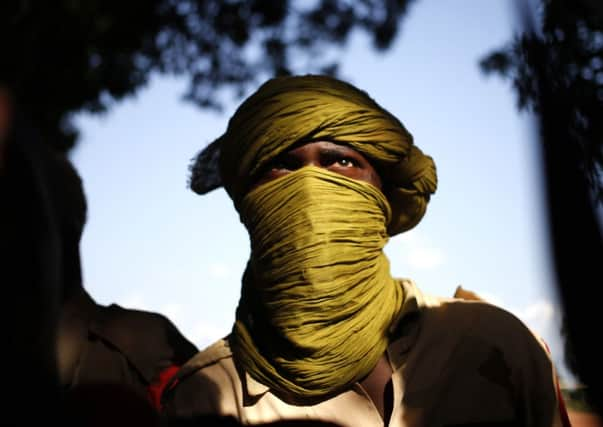UN votes for 12,000 force to end CAR bloodshed


The force, consisting of 10,000 UN troops and 1,800 police, would take over from 5,000 African Union (AU) soldiers desperately attempting to prevent genocide as sectarian violence between Christian and Muslim militias mounts.
However, the UN force will not be deployed until 15 September.
Advertisement
Hide AdAdvertisement
Hide AdFrance, CAR’s former colonial power, which drafted the resolution, scheduled the vote which was passed yesterday.
A separate 2,000-strong French force in CAR would be authorised to use “all necessary means” to support the new UN force, to be known as Minusca (the multidimensional integrated stabilisation mission in CAR).
The move came after clashes between Christian and Muslim fighters left at least 30 people dead yesterday and forced others to flee their homes.
Everaldo De Suza of the Saint Anne parish in the central town of Dekoa said the fighting began on Tuesday when Christian militants attacked and Muslim fighters fought back.
Most of the dead were civilians, killed by Muslims who fired into a crowd of people they had mistaken for Christian militants, he said.
CAR has been in chaos since a March 2013 coup, when mostly Muslim Seleka rebels seized power and ruled with unmitigated brutality.
Christian anti-Balaka militiamen attacked Seleka strongholds in the capital, Bangui, in early December.
As the rebel government crumbled in January the anti-Balaka stepped up the violence, forcing tens of thousands of Muslims to flee.
Advertisement
Hide AdAdvertisement
Hide AdThe draft resolution expresses serious concern at multiple violations of human rights and humanitarian law committed by both former Seleka and anti-Balaka militia.
This includes killings, arbitrary arrests and detentions, torture, sexual violence against women and children, rape and attacks on civilians – “in particular but not limited to Muslims” – and attacks on places of worship.
The draft resolution “demands all militias and armed groups put aside their arms, cease all forms of violence and destabilising activities immediately and release children from their ranks”.
The Security Council wants a strong mandate and the draft would authorise the new UN force to protect civilians and support the disarmament of combatants and the restoration of peace and law and order.
It would also authorise Minusca to help investigate violations of human rights and humanitarian law by armed groups including former Seleka rebel and the anti-Balaka.
While UN peacekeepers and police will not take over until September, the draft resolution will establish the UN mission immediately. It will take over all activities of the UN office in Bangui, including supporting the political transition process, humanitarian assistance and human rights monitoring.
The draft welcomes secretary-general Ban Ki-moon’s call for “revitalisation and acceleration of the political and reconciliation process in order to lay the ground for an end to the conflict,” and urges the transitional authorities to accelerate preparations for free and fair elections no later than February 2015.
Once Minusca is established, the African Union force on the ground will receive logistical support from the UN. Many of its members are likely to become part of the new UN force after being screened to assess their suitability.
Advertisement
Hide AdAdvertisement
Hide AdThe draft resolution stresses “that all perpetrators of violations of international humanitarian law and human rights violations and abuses must be held accountable and that some of these acts may amount to crimes under the Rome statute of the International Criminal Court”.
It would authorise Minusca to help investigate violations of human rights and humanitarian law by armed groups, including ex-Seleka and anti-Balaka, “and to contribute to efforts to identify and prosecute perpetrators”.
The draft notes that CAR is a state party to the International Criminal Court at The Hague and its prosecutor has opened a preliminary examination of alleged crimes committed in CAR since September 2012.